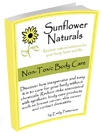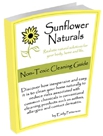Reuters: Caffeine, exercise may help ward off skin cancer
"Both caffeine and exercise alone increased by roughly 100 percent the mice's ability to kill off precancerous cells that could lead to skin cancer compared to the mice that did neither. But the mice that did both showed a nearly 400 percent increase in this ability, the researchers found.">
USA Today: Putting caffeine on skin lowers risk of cancer in lab mice
""This is not a sunscreening effect," said Conney. "It is a biological effect." He said the caffeine acts selectively, causing the abnormal cells to die but not affecting the normal cells."
Skin Cancer Prevalence
According to the American Melanoma Foundation, one person dies every hour of every day from skin cancer. Skin cancer is the most common human cancer. One million people are diagnosed with new skin cancer every year. One in five Americans will develop skin cancer at some point in their lives. Skin cancer will kill more than 10,850 Americans this year. Skin cancer rates have more than tripled in the last 30 years even with the explosion in the use of sunscreen and sunblock products and a high percentage of the population reducing sun exposure.
Skin Cancer Animal Model
The National Cancer Institute explains that hairless mice are used for skin cancer studies. Human skin tissue has been grafted to these mice to create an optimal creature for evaluating causes of skin cancer as well as skin cancer treatments as applicable to humans. Many treatments developed on these mice are currently effective treatments for humans. In addition, these mice and their reaction to excessive exposure to UV light is the main reason that scientists have concluded that excessive exposure to sunlight can cause skin cancer.
Causes and Risk Factors
The most popular cause of skin cancer is UV light, or excessive exposure to sunlight. However, there are other potential causes. In this article hosted on WebMD, 4 Commonly Used Moisturizing Creams Promote Tumors in UV-Exposed Mice, a study by Allan H. Conney, PhD, director of the Susan Lehman Cullman Laboratory for Cancer Research and professor in the school of pharmacy at Rutgers University in Piscataway, N.J., the use of common moisturizers, including Eucerin, Vanicream, Dermabase and Dermovan caused a statistically significant increase in skin cancer in hairless mice. The Food and Drug Administration classifies moisturuizers as 'cosmetics'. The manufacturers are not required to undergo the same safety testing as drugs. In addition, according to The Food and Drug Administraiton BHAs and AHAs, chemicals such as salicylic acid, alpha hydroxy acid and other chemical exfoliants have been shown to increase skin cancer risk. Benzoyl peroxide, a common ingredient in most over-the-counter acne preparations is clearly stated by scientists as a "tumor promoter" and has the ability to cause skin cancer without exposure to UV light. According to earlier research, What Every Parent Needs to Know About Benzoyl Peroxide, benzoyl peroxide is an effective tumor promoter in not only mice, but also rats and hamsters.
|
|
Caffeine Research
There is a possibility that you can cut your skin cancer risk by 50-70% - no matter what chemicals you choose to rub on your skin or how much sun exposure you have received. According to Dr. Allan Conney, a professor of cancer and leukemia research at Rutgers University in New Brunswick, N.J., "We had between 50 to 70% tumor formation inhibition in the mice that were treated with caffeine or with EGCG (the other chemical compound)." An article in USA Today, Putting caffeine on skin lowers risk of cancer in lab mice gives further details of the results of the study by Dr. Conney. An overview of some of the studies done by Conney and others:
~ Effect of caffeine on UVB-induced carcinogenesis, apoptosis, and the elimination of UVB-induced patches of p53 mutant epidermal cells in SKH-1 mice.
"Our studies indicate that caffeine and caffeine sodium benzoate may be useful as novel inhibitors of sunlight-induced skin cancer."
~ Effect of caffeine on the ATR/Chk1 pathway in the epidermis of UVB-irradiated mice.
"Our studies indicate that administration of caffeine enhances the removal of DNA-damaged cells by inhibiting the ATR-mediated phosphorylation of Chk1 and prematurely increasing the number of cyclin B1-containing cells that undergo lethal mitosis."
~ ATR-Chk1 Pathway Inhibition Promotes Apoptosis after UV Treatment in Primary Human Keratinocytes: Potential Basis for the UV Protective Effects of Caffeine.
"These data suggest that a relevant target of caffeine is the ATR-Chk1 pathway and that inhibiting ATR or Chk1 might have promise in preventing or reversing UV damage."
~ UVB and caffeine: inhibiting the DNA damage response to protect against the adverse effects of UVB.
"In this issue, Heffernan and colleagues identify the pathway targeted by caffeine and suggest that inhibition of this DNA damage response may offer a viable therapeutic option for nonmelanoma skin cancer."
~ Stimulatory effect of oral administration of tea, coffee or caffeine on UVB-induced apoptosis in the epidermis of SKH-1 mice.
"Our results suggest that administration of green tea, coffee and caffeine may inhibit UVB-induced carcinogenesis--at least in part--by enhancing UVB-induced apoptosis. Plasma levels of caffeine observed after its oral administration at cancer-preventive dose levels were within the range observed in moderate coffee drinkers."
And, according to another study by Dr. Conney, Inhibitory effects of voluntary running wheel exercise on UVB-induced skin carcinogenesis in SKH-1 mice., a little exercise will also help reduce your risk of skin cancer.
|



